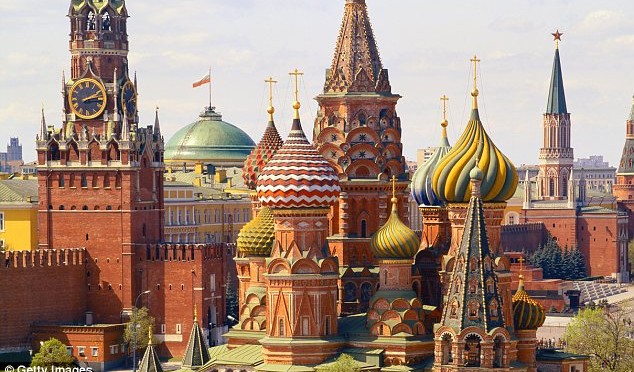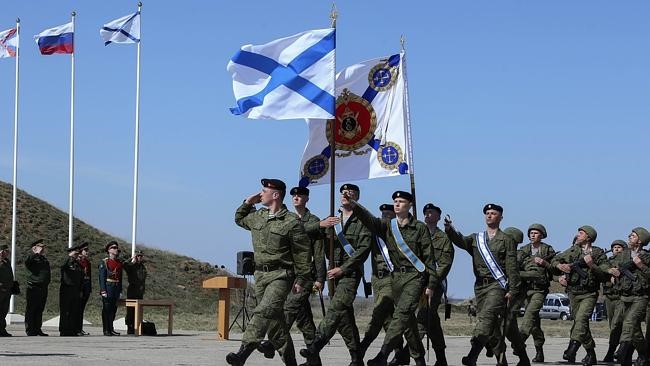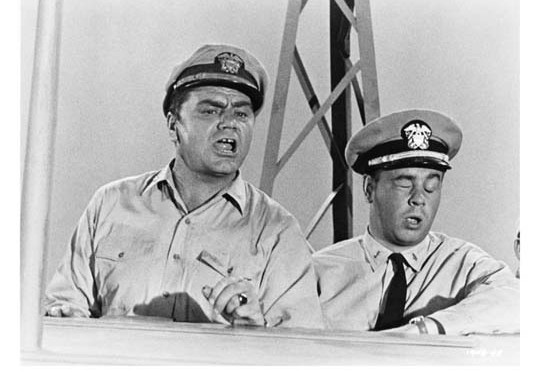By Matt McLaughlin
The Russia Resurgent Topic Week took a big-picture viewpoint of Russia and its strategic choices – and that was perhaps a fortunate approach. With ongoing developments every day with Russian activities in Syria, anything more time-sensitive would have been quickly rendered moot by events.
These events are instructive, though, in the sense that shootdowns and other Russia-NATO incidents are far from unprecedented – it is not difficult to argue that the East-West relationship is simply returning to form. That said, 2015 is not 1985, and the Russian military, in particular its navy, will take a very different form than in the last period of such tense relations. Michael Kofman addresses this, recognizing that although Peter the Great would recognize the Russian strategic imperatives at work, the fleet itself will be oriented toward the green water more than the blue. Small ships with powerful missiles can exert substantial coercive force within their home region, while a small number of legacy platforms like Kirov-class battlecruisers can continue to project power and prestige.
Of course, Russia itself has more grandiose plans, as described by Sean MacCormac in a re-posted article from September about Russia’s new maritime doctrine. Notable strategic priorities are control of the Arctic, presence in the Mediterranean, and cooperation with India and China as means of protecting Russian interests. A great global force is envisioned to provide the operational means to achieve these objectives, though the realities of shipbuilding may intrude.
Patrick Truffer examines the future of Russia’s fleet in great detail, looking at the current structure and capacity for new construction. He assesses the Russian Navy as capable of projecting power globally, but only in a single operation on a limited time horizon. Ongoing activities in Syria are readily displaying limits on Russian logistics and its virtually non-existent amphibious lift capability. But don’t forget a Russian submarine force that remains potent at the strategic level.
Dmitry Gorenburg makes similar points about shipbuilding capacity, while adding more description of operational doctrine and a force structure to implement it. Universal vertical launch tubes filled with precision-strike anti-ship and land-attack missiles can be fitted onto many varieties of small combatants, as well as submarines. These form “the heart of Russia’s naval modernization” and provide the multi-role ships necessary for a credible regional threat.
Shifting gears, Vidya Sagar Reddy finds signs of Sun Tzu’s influence in Russian strategy. By behaving aggressively in widely-dispersed theaters such as the Pacific Ocean and Black Sea, Russia is putting its principle competitor – the U.S. Navy – off balance. This gives Russia the initiative and ability to strike when and where its enemy is weakest.
Robert C. Rasmussen introduces readers to one of the tools Russia has been using to unbalance its foes – Reflexive Control Theory. If applied doctrinally to strategic communication, Reflexive Control Theory helps Russia keep outside powers uncertain as to real Russian intentions and operations. The end result is to induce foreign powers to make decisions favorable to Russian interests. This obfuscation has contributed, most notably, to keeping foreign powers from intervening in Ukraine, and (to use the most recent news) is probably at work in Russian accounts of its Syrian air strikes.
Despite superficial success – they’re operating in the Med, right? – Ben Hernandez asks if Russian maritime strategy is in fact adrift. This essay, re-posted from August, notes the extreme mismatch between rhetoric about the future and capability to build it. This has been described in other posts this week, but Ben adds that Russia could easily “paint itself into a corner” if it continues down this road. With nuclear weapons as the most cost-effective means of destruction, their employment in a fit of bellicosity grows more likely when Russian conventional capabilities cannot deliver the desired effects.
Finally, our gaze shifts to the Arctic, which appears in Russian strategic planning and is the subject of two posts. Laguerre Corentin makes the case that, in contrast with the bellicose rhetoric described in prior articles, Russia is positioned to pursue its objectives through application of international law and custom. It has had success with this approach since Czarist days, and is likely to continue to do so as long as its interests align with such methods.
Providing further analysis of Russia’s role in the Arctic, we reprise Sally DeBoer’s contribution from August about rival nations’ claims to Arctic territory. She examines Russian claims of the North Pole and other parts of the “donut hole” of high seas at the top of the world, as well as competing claims.
And closing out the week is a graphic depiction of the Soviet fleet of 1990 compared with the Russian fleet of 2015, researched and designed by Louis Martin-Vezian. The scale of the work ahead if Russia intends to reach the maritime heights of 25 years ago becomes clear.
Some have said over the years that post-Soviet Russia was only relevant on account of its nuclear arsenal. This was merely an excuse to ignore it in favor of other things as we met the supposed End of History. The fact is, Russia is, well, Russia – and as long as people call that territory home, those people will have certain interests that are not going away. Read a map; read a book; read the news. This week’s discussions have certainly not provided all the answers on Russian resurgence, though we hope to have offered a meaningful contribution; but to ignore the discussion and downplay Russia as a relic of the Cold War is folly. Russia is right where we left it, and will continue to make its impact felt.
Matt McLaughlin is a U.S. Navy Surface Warfare Officer. His opinions do not represent the Department of the Navy.



